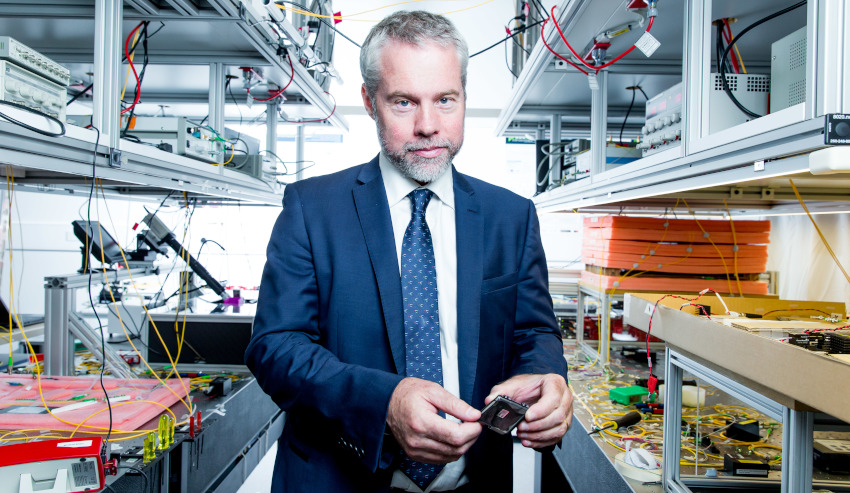Two Australian universities have partnered with a defence giant for the research and development of advanced technologies for both defence and commercial space-based applications.
Lockheed Martin Australia announced at the 68th International Astronautical Congress it has teamed with the University of Sydney and Victoria's RMIT University as part of its commitment to partnering with Australia’s research and industry communities.
"Lockheed Martin has a strong track record of partnering with Australian industry and universities on space-based technology research and development programs," managing director - Australia at Lockheed Martin Space Systems Company Rod Drury said.
"Australia’s participation in the development of advanced technologies that will support the utilisation, monitoring and exploration of space provides opportunities for innovation, local skilled jobs and growth across our space industry, and clearly demonstrates Australia’s world-class R&D capabilities in this area."
The partnership with the University of Sydney will focus on developing photonic-based filters for microwave radio frequency (RF) signal processing.
Professor Benjamin Eggleton, project lead and director of the University of Sydney’s ARC Centre for Ultrahigh Bandwidth Devices for Optical Systems (CUDOS), said the use of light to carry RF signals through fibre-optic components enables RF filters that are significantly smaller, more efficient and more agile than traditional RF processors; thus allowing the data received from transmitters (including satellites) to be manipulated faster, and in many more ways.
"The photonic RF filter R&D project started out as a fundamental research program, and to see this research capture the attention of a global innovation leader such as Lockheed Martin is a testament to both the standard of research being conducted at CUDOS and the potential processing capability of the optical domain," Professor Eggleton said.
The RMIT teaming arrangement will investigate new materials and new processing routes for metallic additive manufacturing, commonly known as 3D printing.
Professor Milan Brandt, project lead and technical director of the Advanced Manufacturing Precinct (AMP) at RMIT University, said advances in metallic additive manufacturing processes and materials, particularly for high-strength lightweight alloys, will have significant implications for aerospace applications.
"This fundamental research may lead to improved metallic additive manufacturing processes and materials, reducing costs without sacrificing quality – making it feasible to manufacture high-strength lightweight aerospace components anywhere, and at any time, even in space," he said.
"This partnership with Lockheed Martin is recognition of the importance of the additive manufacturing research being conducted at the AMP, and reinforces our commitment to maintaining close relationships with industry."
The two research projects are the first to eventuate from the jointly hosted Lockheed Martin and Defence Science Institute Meet the Technologists symposium held last December.


